Herb Importers Europe: A Comprehensive Guide for Buyers – Top 11 Tips Germany | UK | France | Belgium | Netherlands | Ireland
The herb importers Europe or importers of herbs in Europe include major traders, distributors, specialized stores, whollesalers, and food processing companies, mainly in the UK, Germany, Belgium, Netherlands, France, and Ireland. Understanding important factors can significantly streamline the process of selecting a supplier. Herb importers Europe are crucial partners for sourcing high-quality herbs, ensuring compliance with local regulations, and meeting market demands. This comprehensive guide by Mulberry Growers delves into essential tips for buyers looking to work with herb importers Europe. By focusing on the intricacies of these partnerships, buyers can better manage their supply chains and optimize their sourcing strategies. Understanding the dynamics of herb importers Europe will help in making informed decisions and achieving successful market entry.
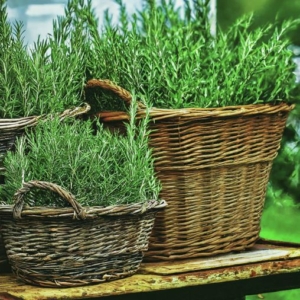
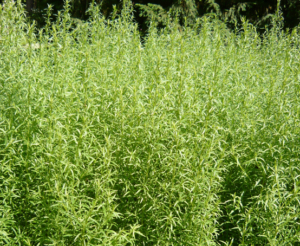
Requirements and Certifications
When engaging with fresh produce importers, it’s crucial to focus on specific requirements and certifications to ensure product quality and compliance. Firstly, understanding and adhering to pesticide contaminant and residue limits is essential, particularly those outlined by European standards for herbs. These regulations help maintain the safety and quality of the produce by controlling pesticide levels for herb importers Europe. Additionally, compliance with plant health regulations is vital to prevent the spread of plant diseases and pests, which can jeopardize entire shipments.
For quality assurance, importers should follow UNECE guidelines, which provide standards for herb classification and quality, and Codex Alimentarius guidelines, which set global safety and quality benchmarks. OECD trade guidelines also offer harmonized rules that facilitate international herb trade. Harvesting practices must align with optimal timing to ensure herbs are collected at their peak, preserving flavor and nutritional value. Post-harvest management is equally important; employing proper processing techniques for drying, curing, and packing is necessary to maintain the herbs’ quality throughout their journey. Lastly, adherence to specific packaging and labeling requirements ensures that herbs are properly protected and correctly identified, which is crucial for compliance and market acceptance.
Market Entry Channels for Herbs in Europe
For traders looking to enter the European herb market, choosing the right market entry channels is key. Direct export is one method where herbs are shipped straight to European buyers or distribution centers, allowing for more control over the sales process and customer relationships. Alternatively, working through intermediaries such as specialized herb importers Europe can be beneficial to herb importers Europe. These intermediaries manage logistics and navigate regulatory compliance, which can streamline the entry process and mitigate potential challenges.
Understanding the competitive landscape is also important. Identifying leading herb importers Europe in the European herb market and their positions can provide valuable insights into market dynamics and competition. This knowledge can help traders develop strategic partnerships for herb importers Europe and tailor their offerings to meet market demands and preferences effectively.
Herb Pricing in Europe
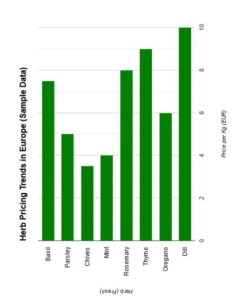
Pricing strategies are a crucial aspect of trading herbs in Europe, and understanding the various factors influencing herb prices is essential for success. Price variations often occur based on the type and quality of the herbs, as well as supply and demand dynamics. Traders should be aware that different herb varieties can command different price points depending on their perceived value and market demand. Additionally, seasonal pricing trends play a significant role in the herb market. Keeping track of these trends allows traders to anticipate price shifts and adjust their strategies accordingly, ensuring competitive pricing and maximizing profitability.
Additional Buyer Requirements
When dealing with herbs, buyers often have additional requirements that must be met to ensure market acceptance and regulatory compliance. Popular herb varieties such as basil, rosemary, thyme, and mint are commonly sought after, and understanding their market trends can help traders align their offerings with current demands. Certification standards also play a critical role. For organic herbs, compliance with EU Regulation (EC) No 834/2007 is required, ensuring that herbs meet organic standards. Food safety certifications such as BRCGS and IFS are also important for demonstrating adherence to safety management practices. Beyond certifications, sustainability and compliance with social and environmental standards are increasingly important.
Adhering to social certifications like Fair Trade and Sedex, as well as environmental certifications such as Rainforest Alliance, can enhance a trader’s reputation and appeal. Organic herb standards require specific certification criteria and addressing challenges related to contamination and maintaining organic integrity is essential for maintaining product quality and consumer trust.
Herb Market Channels in Europe
Market segmentation is crucial for successfully navigating the herb market in Europe. Premium segments cater to high-end markets that demand organic and specialty herbs for herb importers Europe. These markets often focus on high-quality, niche products and can command higher prices, appealing to consumers who prioritize sustainability and unique flavors. In contrast, mass distribution involves conventional herbs intended for bulk sales and processing. These herbs are typically distributed through large-scale retailers and are often sold at lower prices, targeting a broader consumer base. Understanding these segments helps tailor product offerings to meet specific market demands and optimize sales strategies. Western Europe has the largest market.
Distribution pathways for herbs in Europe include several key channels. Herb importers Europe are vital, as major herb importers play a central role in bringing herbs from producers to European markets. These networks of herb importers Europe ensure that herbs meet local standards and regulations. Supermarket agreements are another important channel for herb importers Europe; regular supply contracts with supermarket chains facilitate consistent distribution and visibility of herbs in retail environments. Additionally, wholesale channels, both local and global, provide opportunities for bulk sales and wider market reach. Leveraging these pathways effectively can enhance market presence and distribution efficiency.
Strategies for European Market Entry
Packaging compliance is a fundamental aspect of entering the European herb market. Ensuring that herb packaging adheres to EU regulations is essential to avoid legal issues and facilitate smooth market entry. Packaging must meet specific standards related to labeling, materials, and safety, reflecting both regulatory requirements and consumer expectations. Achieving the necessary certifications is another critical strategy for herb importers Europe. Securing essential certifications, such as organic or food safety certifications, is crucial for market acceptance and credibility. These certifications not only demonstrate product quality but also build trust with consumers and regulatory bodies.
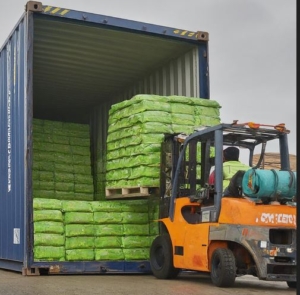
Targeting niche markets can offer significant opportunities for growth. Exploring specialty segments, such as organic or exotic herbs, allows traders to cater to specific consumer preferences and trends. These niche markets often have less competition and can provide higher profit margins. Finding distribution partners is also essential for successful market entry. Partnering with experienced distributors who have in-depth knowledge of the European market can facilitate smoother logistics, regulatory compliance, and market penetration. Engaging with established importers and distributors ensures that products are effectively introduced and managed within the market.
Retail Market: Supermarket Agreements
Retail market opportunities for suppliers are significantly enhanced through supermarket supply agreements. Securing long-term contracts with retail giants offers multiple advantages, such as consistent demand and predictable revenue streams. These agreements often include favorable terms for suppliers, including regular orders and potential promotional support, which can help stabilize cash flow and reduce market volatility. Additionally, being a trusted supplier for major supermarket chains can enhance brand visibility and credibility, leading to further business opportunities. It also provides access to extensive distribution networks of herb importers Europe, ensuring broader market reach and consumer access.
Strategic Partnerships for herb importers Europe: Cooperation
Entry routes to retail programs can be significantly enhanced through strategic partnerships for herb importers Europe. Collaborating with service providers, such as logistics companies that deal with herb importers Europe and marketing agencies, allows suppliers to leverage specialized herb importers Europe and resources, facilitating smoother market entry and operations. Forming alliances with major companies that deal with herb importers Europe, including established retail chains or distributors, can open doors to extensive retail networks for herb importers Europe and valuable industry connections. These partnerships for herb importers Europe can also provide access to key decision-makers, streamline the supply chain, and offer marketing support, thereby increasing the likelihood of successfully penetrating retail programs and expanding market presence.
Direct Retail Sales: Challenges and Potential
Direct retail sales offer both opportunities and challenges when selling to supermarkets. One significant advantage is the potential for higher profit margins by cutting out intermediaries and dealing directly with retailers. This direct relationship can also lead to better control over branding and customer feedback. However, challenges include meeting stringent supermarket requirements, managing large-scale logistics, and negotiating terms without the buffer of intermediaries. Building strong relationships with supermarket buyers and demonstrating consistent quality and reliability are crucial for overcoming these hurdles and achieving long-term success in direct retail sales.
Initial Spot Market Entry: Starting with Smaller Traders
Entering the spot market by starting with smaller traders offers both risks and benefits. On the positive side, smaller traders often provide more flexible terms and quicker decision-making processes, which can facilitate faster entry and adaptation to market conditions. They may also offer more personalized service and lower initial barriers to entry. However, the risks include potentially limited market reach and less stability compared to larger, established herb importers Europe. Additionally, smaller traders might lack the extensive networks for herb importers Europe and resources required for scaling up quickly. Balancing these factors is crucial for a successful market entry strategy.
Supplier Recommendations: Enhancing Appeal to Retail Programs
To enhance appeal to retail programs, suppliers must prioritize providing consistent quality and reliable supply. Retailers seek suppliers who can consistently deliver high-quality products that meet their specifications and consumer expectations. Demonstrating a track record of reliability, including on-time deliveries and adherence to contract terms, is crucial for securing and maintaining contracts. Building strong relationships with retail buyers by effectively communicating capabilities and addressing any issues proactively can also significantly boost a supplier’s appeal. Investing in quality control processes and robust supply chain management ensures that suppliers can meet retail demands consistently and effectively.
Herb Market Competition in Europe: Market Overview
The competitive landscape of the herb market in Europe is shaped by several key trends and demand dynamics. One notable trend is the growing preference for organic and sustainably sourced herbs, which has intensified competition among suppliers aiming to meet these consumer demands. Additionally, the rise of specialty and exotic herbs has introduced new herb importers Europe and diversified the competitive field. Demand trends also reflect a shift towards convenience and ready-to-use herb products, influencing how companies that deal with herb importers Europe position themselves in the market. Analyzing these competitive trends helps suppliers understand market dynamics, identify opportunities, and develop strategies to differentiate themselves and capture market share.
Key Herb Suppliers: Major Exporting Countries
In the European herb market, several key exporting countries play a dominant role, each with its own competitive edges. India and China are major suppliers, leveraging their extensive agricultural infrastructure and lower production costs to offer a wide variety of herbs at competitive prices. These countries benefit from established export channels and large-scale production capabilities. The Mediterranean region, including countries like Spain and Italy, is renowned for high-quality herbs such as basil and oregano, benefiting from favorable climates and traditional cultivation practices that enhance flavor and quality. Each of these exporting nations capitalizes on unique advantages, such as cost efficiency, quality, or specialized growing conditions, to strengthen their position in the European market.
Global Production Trends: Herb Supply Dynamics
The global herb production landscape is evolving, with several trends shaping the supply dynamics. Traditionally, countries like India, China, and the Mediterranean region have dominated herb production due to their favorable climates and established agricultural practices. However, emerging regions are gaining prominence, driven by advancements in cultivation techniques and increasing investment in agriculture. Southeast Asian countries, including Vietnam and Thailand, are expanding their herb production capabilities, offering competitive pricing and diverse varieties. Additionally, Africa is gradually becoming a significant player, with countries such as Kenya investing in herb cultivation to meet growing global demand. These shifts highlight a dynamic supply chain where both established and emerging regions contribute to the increasingly diverse and competitive global herb market.
Country-Specific Insights: Challenges and Opportunities
Analyzing key herb-exporting countries reveals a mix of challenges and opportunities within the global herb market.
India faces challenges related to inconsistent quality and pesticide residues, impacting its competitive edge. However, its vast production capacity and low costs present significant opportunities for expanding market share, particularly in bulk herb exports. Investments in quality control and sustainable practices can enhance its global standing.
China encounters issues with regulatory compliance and environmental concerns, which can affect product perception. Nevertheless, its scale of production and diverse herb varieties offer substantial opportunities for meeting global demand, especially for processed herbs and essential oils.
Mediterranean countries like Spain and Italy benefit from favorable climates and a strong reputation for high-quality herbs, such as basil and rosemary. However, they face competition from lower-cost producers. Their opportunity lies in leveraging their quality and authenticity to cater to premium markets and capitalize on trends towards organic and artisanal products.
Vietnam and Thailand are emerging as competitive herb importers Europe due to their favorable growing conditions and increasing production capacities. Their challenge is to scale operations while maintaining quality standards. Opportunities include tapping into the growing global demand for exotic and specialty herbs and enhancing their market presence through certifications and sustainable practices.
Kenya and other African countries are making strides in herb production, driven by improvements in agricultural techniques and export infrastructure. The challenge here is to build consistent supply chains and meet international quality standards. The opportunity lies in leveraging lower production costs and expanding into new markets as global demand for herbs continues to rise.
Competitive Strategies: Relationship Management
Maintaining strong buyer relationships and adapting to market conditions are crucial competitive strategies in the herb market. One effective approach is to prioritize open and transparent communication with buyers. Regular updates on production status, quality control measures, and any potential issues help build trust and reliability. Implementing a proactive feedback loop allows suppliers to address buyer concerns promptly and adapt to their specific needs. Additionally, investing in customer service, such as personalized support and flexible response to order changes, can differentiate suppliers in a competitive market.
Adapting to market conditions involves staying informed about industry trends and consumer preferences. Suppliers should continuously monitor market developments and adjust their offerings accordingly, whether it involves introducing new herb varieties or improving product quality. Building strategic partnerships for herb importers Europe with buyers and participating in industry events can also provide valuable insights and opportunities for collaboration. Flexibility in pricing and supply chain management helps suppliers remain competitive and responsive to market fluctuations, ensuring they can meet buyer demands and maintain long-term relationships.
Major Competitors: Company Profiles
Mulberry Growers is a notable contender in the global herb market, distinguished by its commitment to sustainability and organic farming. Based in Kenya, Mulberry Growers excels in cultivating a diverse range of high-quality herbs, including basil, thyme, rosemary, oregano, tarragon, chives, and sage. Their dedication to organic farming practices not only ensures the purity and superior flavor of their herbs but also supports environmentally friendly agricultural methods. This approach aligns well with the growing global demand for sustainable and ethically sourced products.
Mulberry Growers’ market strategy effectively leverages their unique positioning as a supplier of organically grown herbs to Europe and the Middle East. By emphasizing their sustainable farming practices and high-quality produce, they have successfully built a strong reputation among international buyers. Their ability to consistently deliver fresh, premium herbs to diverse markets across Europe and the Middle East further solidifies their competitive edge. The company’s focus on maintaining rigorous quality standards and fostering transparent relationships with clients has positioned them as a reliable and esteemed supplier in the herb industry.
McCormick & Company is a leading player in the herb and spice industry, known for its extensive product range and global presence. McCormick’s market strategy focuses on quality consistency, innovation, and brand strength. The company invests significantly in research and development to enhance flavor profiles and create new herb blends. Additionally, McCormick emphasizes strategic partnerships for herb importers Europe with retailers and food manufacturers to ensure widespread distribution and consumer reach.
S&B Foods Inc. is another major herb supplier, recognized for its diverse product portfolio and strong market presence, particularly in Asian herbs and spices. S&B’s strategy includes leveraging its expertise in Asian culinary traditions to offer unique herb products that cater to specific regional tastes. The company also invests in advanced processing techniques to ensure product freshness and quality, while expanding its global distribution network to reach new markets.
Döhler Group stands out for its focus on natural ingredients and innovative solutions in the herb market. Döhler’s strategy revolves around integrating state-of-the-art processing technologies with sustainable sourcing practices. The company targets both the retail and food service sectors, offering customized herb solutions and emphasizing its commitment to sustainability and traceability. Döhler’s approach includes strategic collaborations with farmers and suppliers to enhance product quality and supply chain efficiency.
Herb Pharm distinguishes itself in the herbal supplement sector with a strong emphasis on organic and sustainably sourced herbs. Herb Pharm’s strategy is centered on maintaining high-quality standards and transparency in its sourcing practices. The company invests in organic farming practices and works closely with growers to ensure the purity and efficacy of its herbal products. Herb Pharm’s market approach includes educating consumers about herbal health benefits and building strong relationships with natural product retailers.
Growth and Expansion: Strategic Initiatives
Top companies that deal with herb importers Europe in the herb market pursue various strategic initiatives to drive growth and expansion. These strategies often include investing in new technologies to enhance production efficiency and product quality. Companies that deal with herb importers Europe may also explore mergers and acquisitions to expand their market presence or enter new regions. Additionally, investing in research and development allows companies that deal with herb importers Europe to innovate with new herb varieties and product offerings. Strategic partnerships for herb importers Europe and collaborations with retailers and distributors are also common, facilitating broader market reach and improved supply chain capabilities. These initiatives collectively support sustained growth and competitive advantage.
Competitive Positioning: Market Positioning Tips
Effectively competing with leading suppliers in the herb market involves several key strategies. First, differentiating products through unique qualities or certifications, such as organic or fair trade, can attract niche markets and build a strong brand identity. Offering competitive pricing and maintaining high-quality standards are essential to meeting market demands and securing buyer loyalty. Additionally, focusing on exceptional customer service and building strong relationships with distributors can enhance market positioning. Staying informed about industry trends and adapting to consumer preferences helps suppliers remain relevant and responsive in a dynamic market environment.
Herb Varieties: Popular Herb Types by Herb Importers Europe
Several herbs are in high demand due to their versatile culinary applications and essential roles in various cuisines. Basil is highly favored for its fresh, aromatic flavor, integral to dishes like pesto and Caprese salad. Thyme and rosemary are popular for their robust, earthy flavors that enhance a variety of savory dishes and are staples in Mediterranean cooking. Oregano is widely used in Italian and Greek cuisines, particularly in pizza and pasta sauces.
Tarragon adds a distinctive anise-like flavor to French dishes, while chives, with their mild onion flavor, are popular in salads and as a garnish. Sage is valued for its strong, earthy taste and is frequently used in stuffing and roasted meats. Collectively, these herbs are highly sought after and maintain a strong market presence due to their widespread culinary uses and popularity among consumers and chefs alike.
Herb Varieties: Less Common Herbs
While popular herbs dominate the market, less common varieties offer unique opportunities for niche markets and specialized culinary applications. Herbs such as lemongrass, known for its citrusy flavor, and fenugreek, valued for its slightly bitter taste, are less commonly used but sought after in specific cuisines like Thai and Indian cooking. Lovage and marjoram also fall into this category, offering distinctive flavors that can enhance gourmet dishes and specialty recipes. Angelica and hyssop are other examples of less common herbs, appreciated for their unique flavors and uses in traditional and herbal medicine. These less common herbs provide suppliers with opportunities to differentiate their offerings and cater to specialized culinary needs.
Offering a Broad Range
To effectively cater to diverse market needs, suppliers should offer a broad range of herb varieties. Including both highly demanded herbs such as basil, thyme, rosemary, oregano, tarragon, chives, and sage, alongside some less common but nutritionally beneficial varieties like lemongrass and fenugreek, ensures that all culinary preferences and applications are covered. This diverse product range allows suppliers to meet varying consumer demands, from everyday home cooking to gourmet and specialty uses. Offering a wide selection not only attracts a broader customer base but also enhances market competitiveness by addressing both mainstream and niche herb requirements.
Key Takeaways
Selecting the right herb importers Europe is pivotal for accessing premium herb varieties and maintaining a competitive edge. This guide by Mulberry Growers has outlined the key strategies for engaging effectively with herb importers Europe and ensuring product quality and compliance. By leveraging these insights, buyers can enhance their procurement processes and build robust relationships with herb importers Europe. Embracing these tips will not only facilitate smoother transactions but also contribute to long-term success in the European herb market. Your approach to working with herb importers Europe can set the stage for a thriving business partnership.
Contact Us – We Export Herbs to Europe
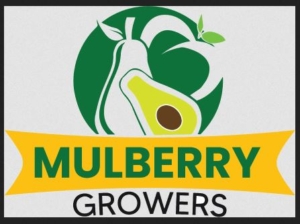
Contact Mulberry Growers today to import our herbs and connect with leading herb importers in Europe. If you are in the UK, Germany, Belgium, Netherlands, France, or Ireland, we will supply high-quality, sustainably grown herbs to you from our own farms. Let us help you navigate the European herb market and achieve your sourcing goals with confidence. Reach out now for high quality and reliability!
To connect use the following options or start from here:
- Our Email: commercial@mulberrygrowers.com
- Call/WhatsApp: +254 716 150 111 OR +254 748 897 749
- Website: www.mulberrygrowers.com